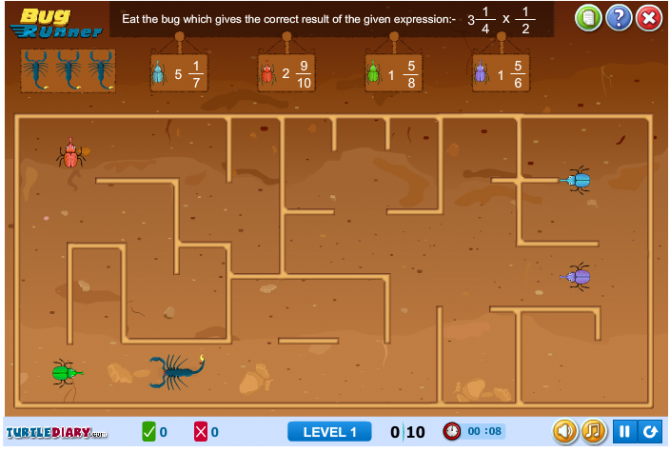Although children are starting to head back to school, summer…

Online Math Games To Keep Your Child Excited About Learning
Math has a bum rap in our society. Almost universally, students dread math in the upper grades, college, and beyond. But typically, preschool and elementary school kids don’t share that attitude. During these early years, they are wired to learn and are as excited about learning math as they are about discovering bugs and baking cookies.
This is a good thing. When they grow up, kids will use math almost daily and a working knowledge of math is essential in making key life decisions. One day your child will want to buy a house, make a decision between leasing and renting a car, plan a vacation, or tip a server — and will need math to do all that and more.Learning math also teaches logical thinking. Dissecting a problem and solving it in stages is a skill that can be applied to many areas of life. Math also teaches how changing the value of one thing can have a ripple effect down the line, a concept that’s useful when pondering the probable outcome of one’s actions.
Finally, many of the most promising career paths are in science and technology, all of which have math as a foundation. Plus, some of the coolest jobs require math, like animator or game designer. So how do we keep kids excited enough about math to master it and receive these benefits? Online math games are one way to make learning math a fun and easy experience.
There are several reasons fun math games work so well to pique a child’s interest in numbers:
- Learning is incremental: Kids learn new math facts in small chunks that are easy to master.
- Feedback is immediate: Unless taking a quiz, kids know right away if the answer is correct or not. They can figure out on the spot what went wrong — or try again.
- Learning is often self-paced: Many online math games don’t present new material until students have passed previous challenges.
- Reviewing is easy: If a child has trouble with a concept, they can review it by replaying the game. Or you can find them another game that teaches the concept so they don’t get bored or discouraged.
- The games are designed to engage children: Characters, colors and sounds capture and hold children’s interest while they learn. Often, they’re so engrossed in playing the game that they don’t realize they are learning math.
- The experience is personalized: Online games often address a student by name to create the sense of a one-to-one connection.
- They increase feelings of competency: The vibrant sights and sounds associated with completing a game makes a child feel like a winner, even if they’ve struggled as they made their way through the game. This increases self-confidence, which helps them to learn the next increment.
There are many math games available on the internet. To find them, try a search with the terms fun + math + games + your child’s grade level or the skill you want them to learn or practice.



